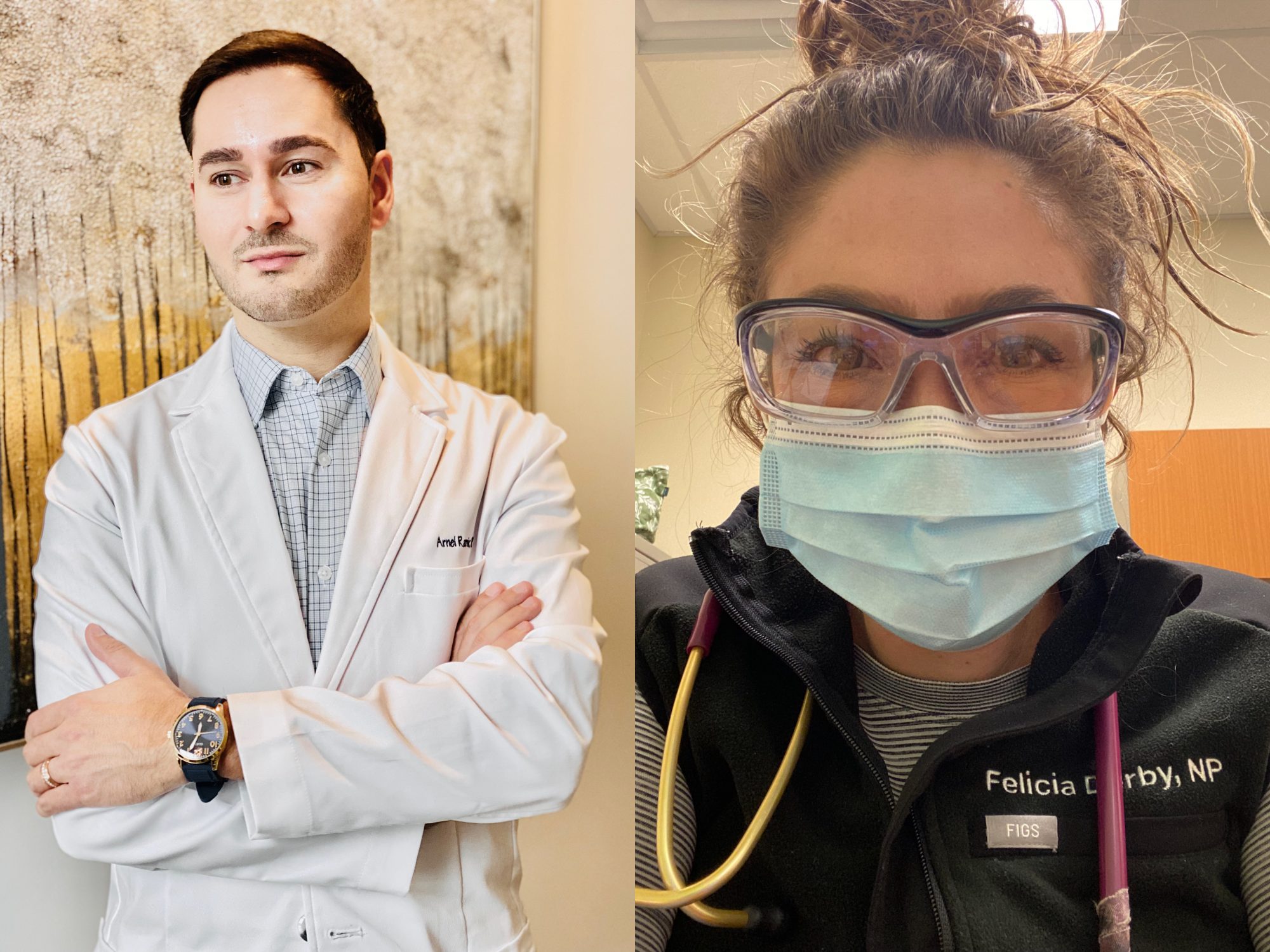Arnel Ramic’s memory of nurturing intertwines with the scent of peppermint tea from childhood. Decades after his short stay at the children’s hospital, Ramic is now an experienced nurse practitioner (NP) specializing in critical care and emergency. Ramic cherishes the care from his nurse even more.
“The tea they brought me was always infused with extra sugar. The care from a nurse is different from the care from my family, but as important,” recalls Ramic. “I think that was my ‘aha’ moment. I wanted to give out that kind of patience and nurture to other people.”
Like Ramic, Nurse Practitioner Felicia Derby also engaged with her current profession at a young age. She felt lucky to keep up with her interests and carefully planned her nursing career as early as in high school. It took six years of post-secondary education to become an NP, not counting the years she worked as a Registered Nurse (RN) in between undergraduate and graduate programs.
“When we entered the NP program, we already had knowledge in nursing, and years of work experience on the frontline,” explains Ramic. “Passion and professionalism sent us into the program, but people don’t see the extra barriers in front of mature students — when we decide to further our education in our late 20s or early 30s, many of us have mortgages to pay and families to support. Financial issues are a huge gap.”
Both Ramic and Derby, as well as many other nurses, received education funding from Alberta Registered Nurse Educational Trust (ARNET) to advance their nursing education. This Canadian registered charity provides educational support open to all current RN and NP members of the College of Registered Nurses of Alberta. In 2021, ARNET distributed $730,000 in education funding to support over 850 RNs and NPs in Alberta, and awarded 31 scholarships to recognize excellence in nursing.
“It helps because broadening your education translates to better care for patients. It also translates to feeling more confident as a provider, that you know you’re providing the best care you can,” says Derby.
